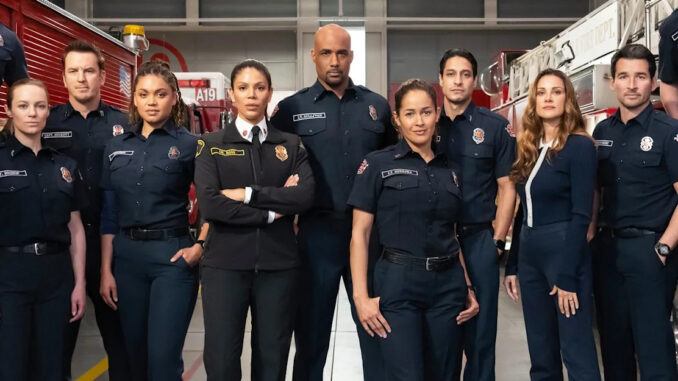
There's a peculiar alchemy to the final notes of a long-played symphony, a poignant mix of satisfaction for the journey completed and a gentle ache for the silence that follows. Such is the emotional landscape that Shonda Rhimes, the undisputed architect of a television universe, navigates as Station 19 extinguishes its last narrative flame. It’s more than just a show ending; it's a significant chapter closing in a saga that has redefined prime-time television, and her farewell is less a simple goodbye and more a deeply felt, resonant chord that echoes the impact of her storytelling.
For two decades, Shonda Rhimes has been a master weaver of narrative tapestries, stitching together complex characters, high-stakes drama, and profound emotional truths. From the surgical theaters of Grey Sloan Memorial to the cutthroat corridors of Washington D.C., her "Shondaland" has become synonymous with compelling, diverse, and often revolutionary television. Station 19, born from the fiery heart of Grey's Anatomy, was never merely a spin-off. It carved out its own formidable identity, a gritty, vital exploration of the lives of Seattle firefighters – heroes who run towards the danger others flee.
As the final episode approached, the air around the production undoubtedly crackled with a bittersweet energy. For Rhimes, who shepherds these worlds from concept to screen, saying goodbye to Station 19 must feel akin to watching a child leave home. She isn't just an executive producer; she’s a visionary who imbues her shows with a distinct ethos: a commitment to flawed but deeply human characters, a fearless tackling of social issues, and an unwavering belief in the power of community and resilience. Station 19 embodied these principles, not just through pulse-pounding emergencies, but through the nuanced relationships forged in firehouses, the personal sacrifices made, and the relentless pursuit of justice both on and off the job.
The emotional weight of this farewell extends far beyond the creator. It settles on the cast and crew, a family forged over seven seasons of shared triumphs and challenges, long nights and early calls. They've lived through the simulated trauma and the real-world camaraderie, becoming the very embodiment of the firefighters they portray. And then there are the fans – the dedicated viewers who have invested countless hours, tears, and cheers into the lives of Andy Herrera, Robert Sullivan, Maya Bishop, and the entire crew of Station 19. For them, the final episode is a collective breath held, a ritualistic farewell to characters who have become as familiar as old friends, their stories a comfort, their struggles a reflection of their own.
Shonda Rhimes' emotional farewell isn’t just about the show itself; it's a testament to the enduring power of creation and conclusion. Her goodbye acknowledges the indelible mark Station 19 has left – its commitment to authentic representation, its willingness to delve into difficult subjects like mental health and systemic injustice, and its unwavering focus on the humanity beneath the helmets. It’s a moment of gratitude for the journey and a recognition of the legacy.
As the final credits roll and the roar of sirens fades into the background, the emotional resonance of Rhimes' goodbye lingers. It serves as a reminder that while individual stories may find their end, the spirit of storytelling itself, especially in the hands of a titan like Shonda Rhimes, is ever-evolving, ever-present. Station 19 may have reached its final call, but the embers of its memory, and the powerful impact of its creator, will continue to burn brightly in the annals of television history. It's a bittersweet farewell, yes, but also a celebration of a job exceptionally done, and a promise that new narratives from Shondaland are always on the horizon.